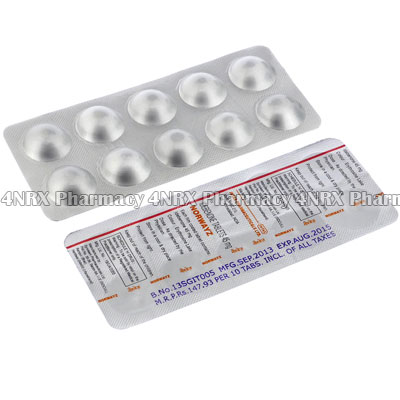 |
Home  Neurological Health Neurological Health  Norwayz (Idebenone) Norwayz (Idebenone) |
|
|||||||||
|
|
Norwayz (Idebenone)
What is Norwayz (Idebenone) used for? Norwayz (Idebenone) is an oral nootropic prescribed to treat patients with Friedreich`s ataxia, Duchenne muscular dystrophy, or to prevent dementia caused by Alzheimer`s disease. The medication strengthens neurotransmitter connections in the brain to improve memory and cognitive function. Your doctor may also prescribe it to treat other conditions that are not listed here. How should I use Norwayz (Idebenone)? Norwayz (Idebenone) is normally taken once daily at a dosage of one tablet, but your individual directions will be determined by your doctor based on your current health and the severity of your symptoms. These should be swallowed along with a large glass of water and may be taken with or without food. Do not split or chew the tablets prior to use to avoid unintentionally destroying or altering the effects of their contents. What are the side effects of Norwayz (Idebenone)? Norwayz (Idebenone) will not cause side effects in most patients when used correctly. Stop using the medication and contact your doctor immediately if you experience any worrying symptoms or signs of an allergic reaction such as hives, swelling, or trouble breathing. These conditions may require lower doses, reduced frequency of administration, or emergency medical assistance in serious cases. Please Note Strictly use Norwayz (Idebenone) as prescribed and follow all instructions provided by your doctor. Safe, suitable, and optimum dosage can vary and is dependent on the patient`s health and medical history, as well as the condition you are treating. Norwayz (Idebenone) may not be safe or suitable for all patients. Always ensure your doctor is informed if you are pregnant or breastfeeding, using any other type of medication (including non-prescription medicine, vitamins, and supplements), as well as if you have any allergies, other illnesses, or pre-existing medication conditions. Seek immediate medical attention or proceed to your nearest accident and emergency department if you suffer a hypersensitive or allergic reaction. Symptoms usually present during a reaction of this nature include difficulty breathing or swallowing, swelling of the limbs or face, tight chest, hives, and skin rashes. 
|
||||||||||||||||||